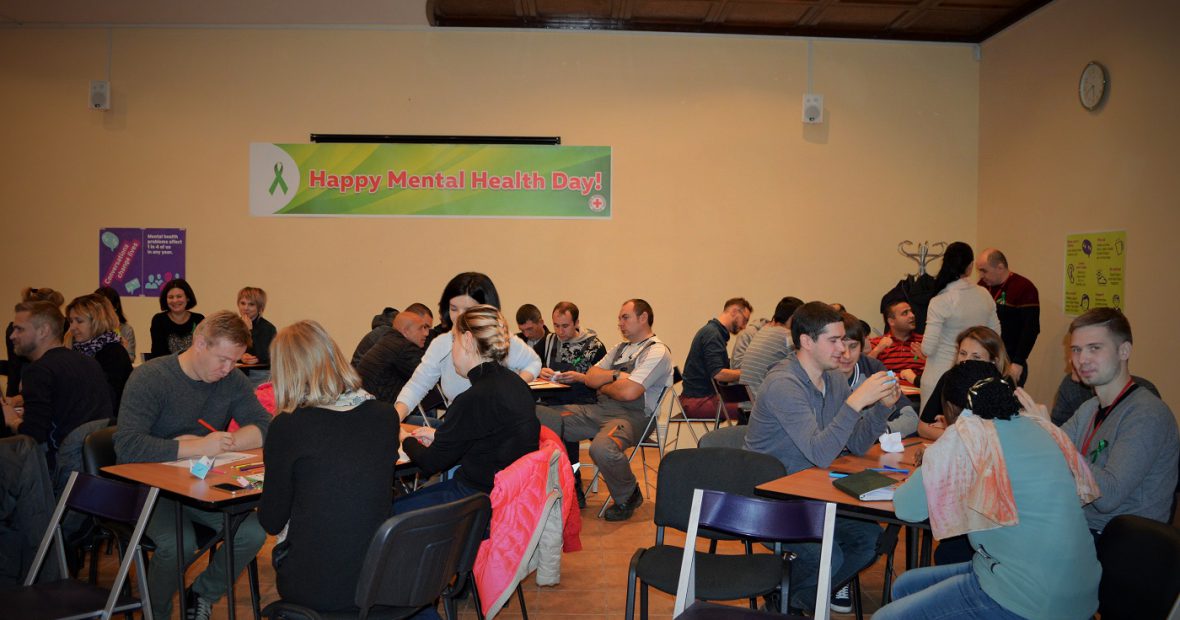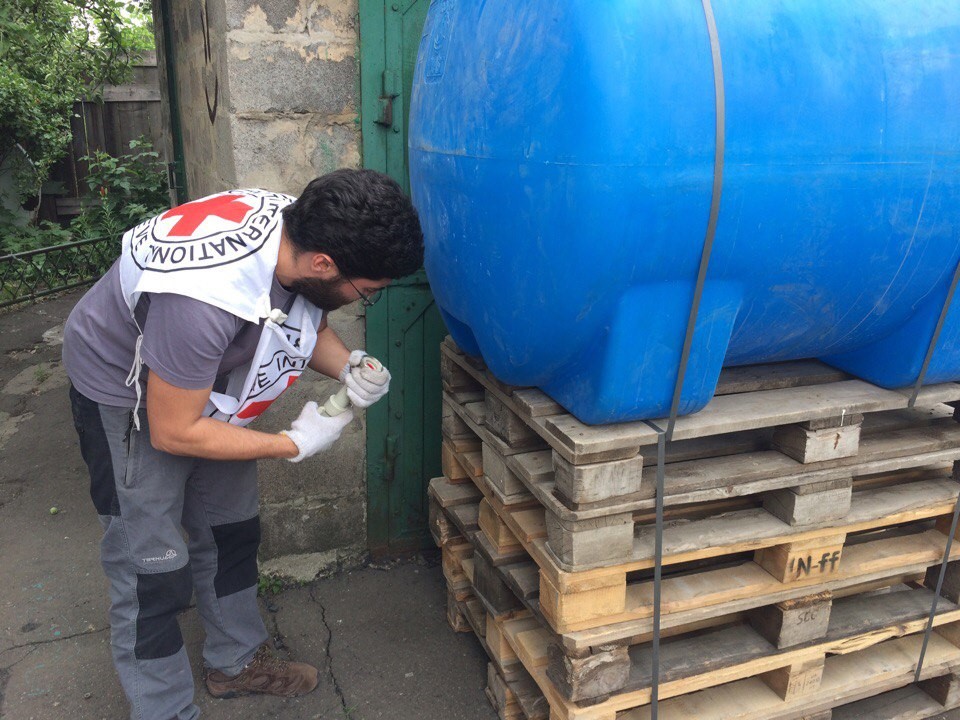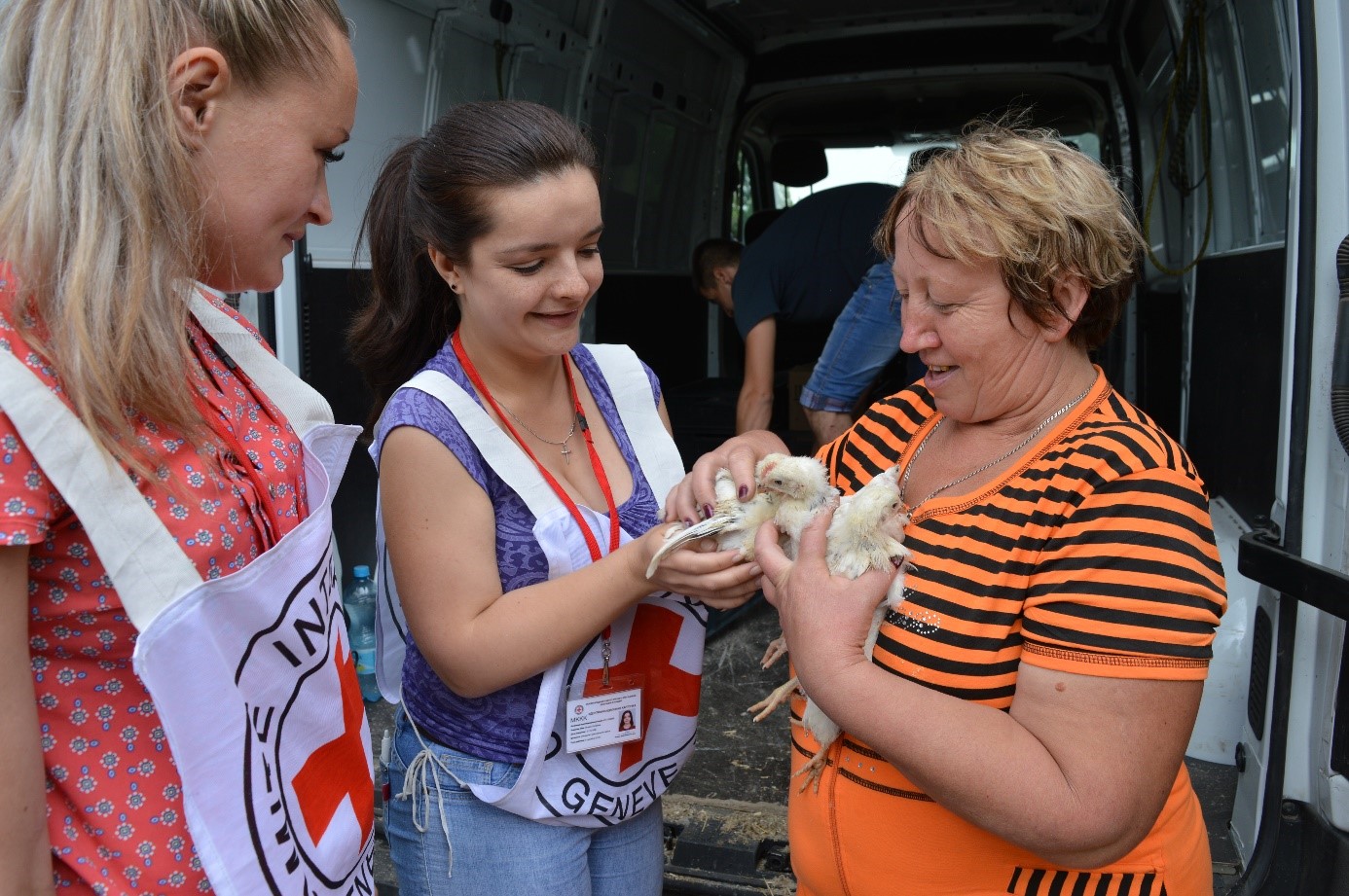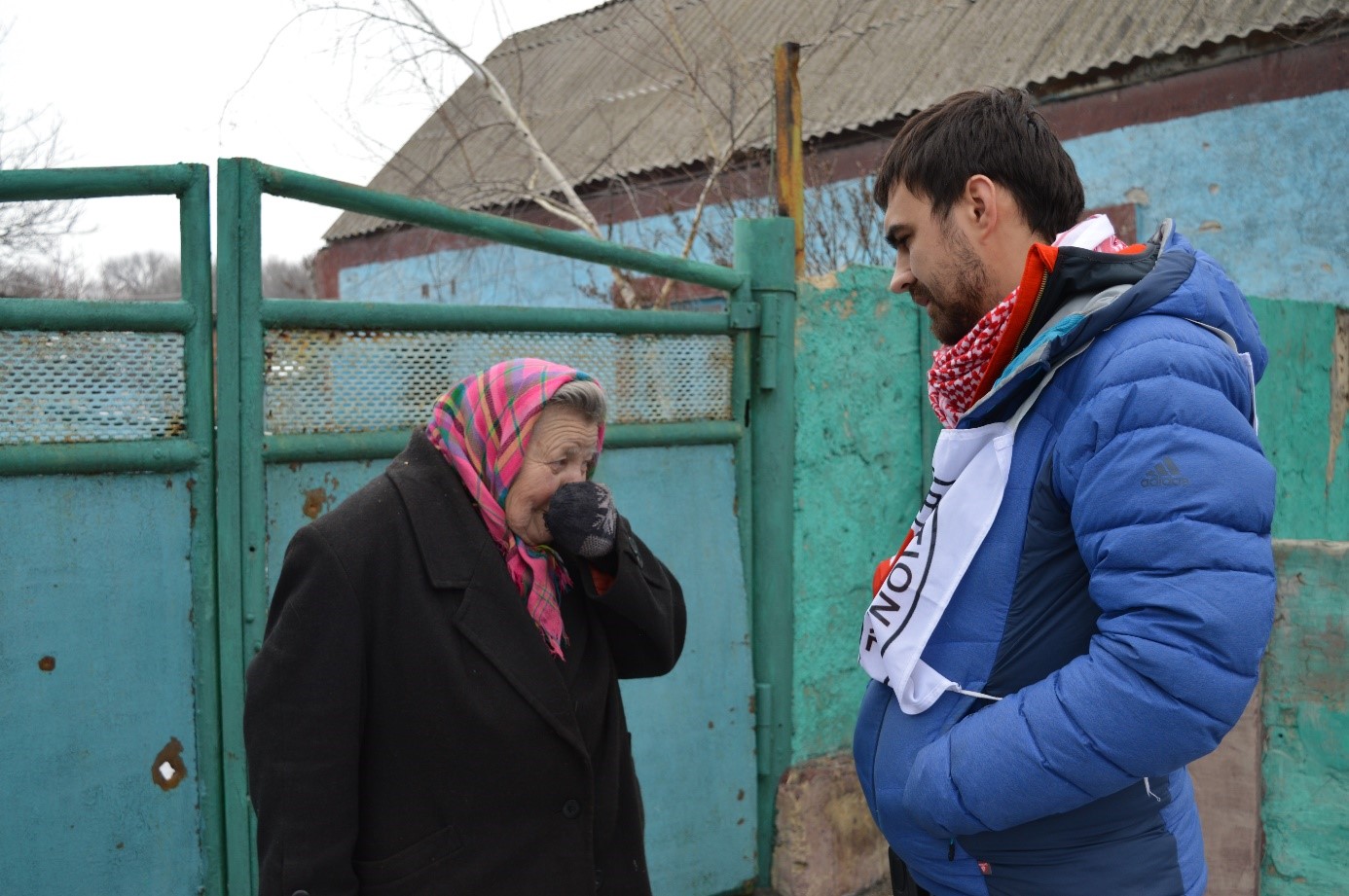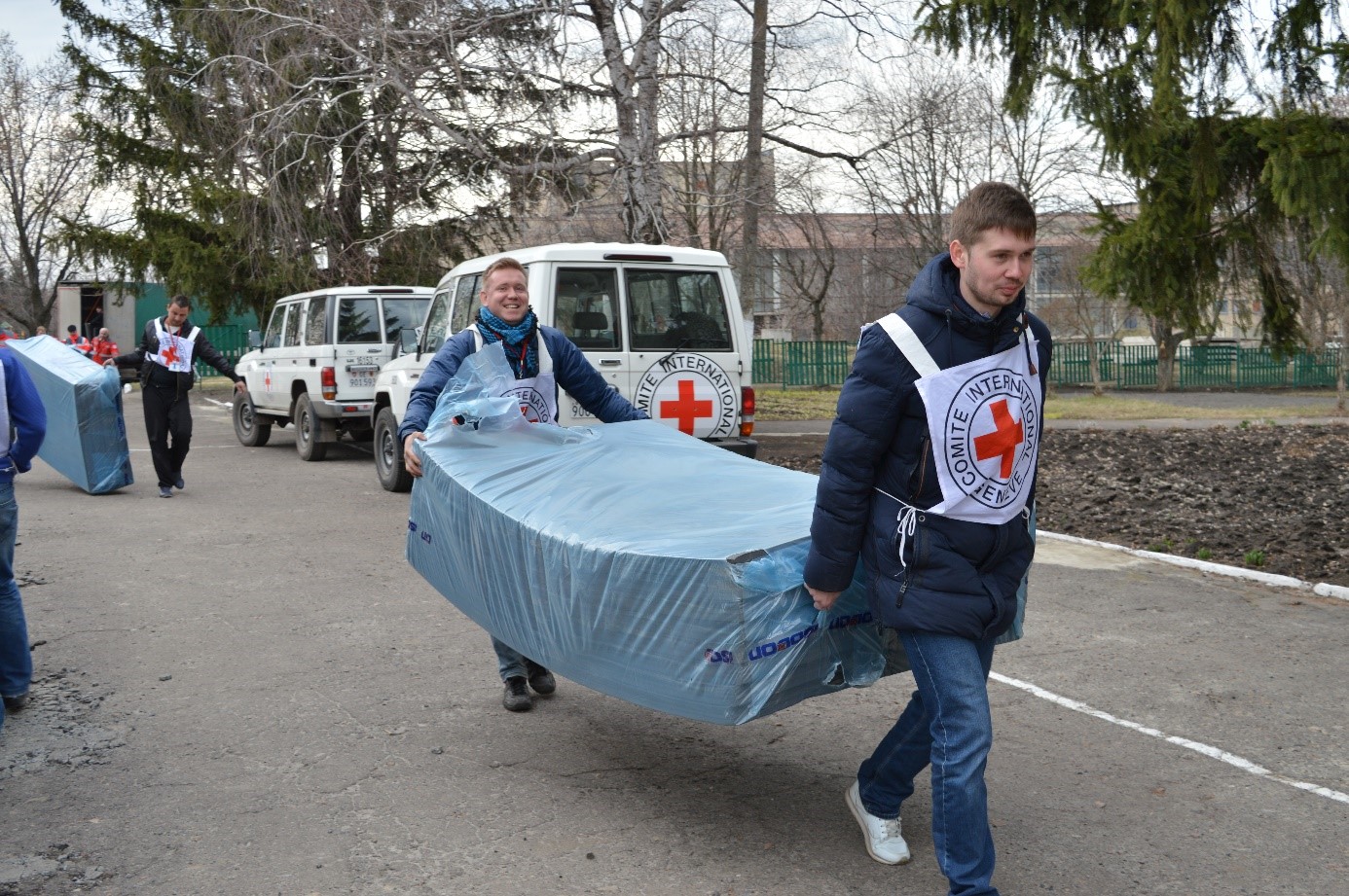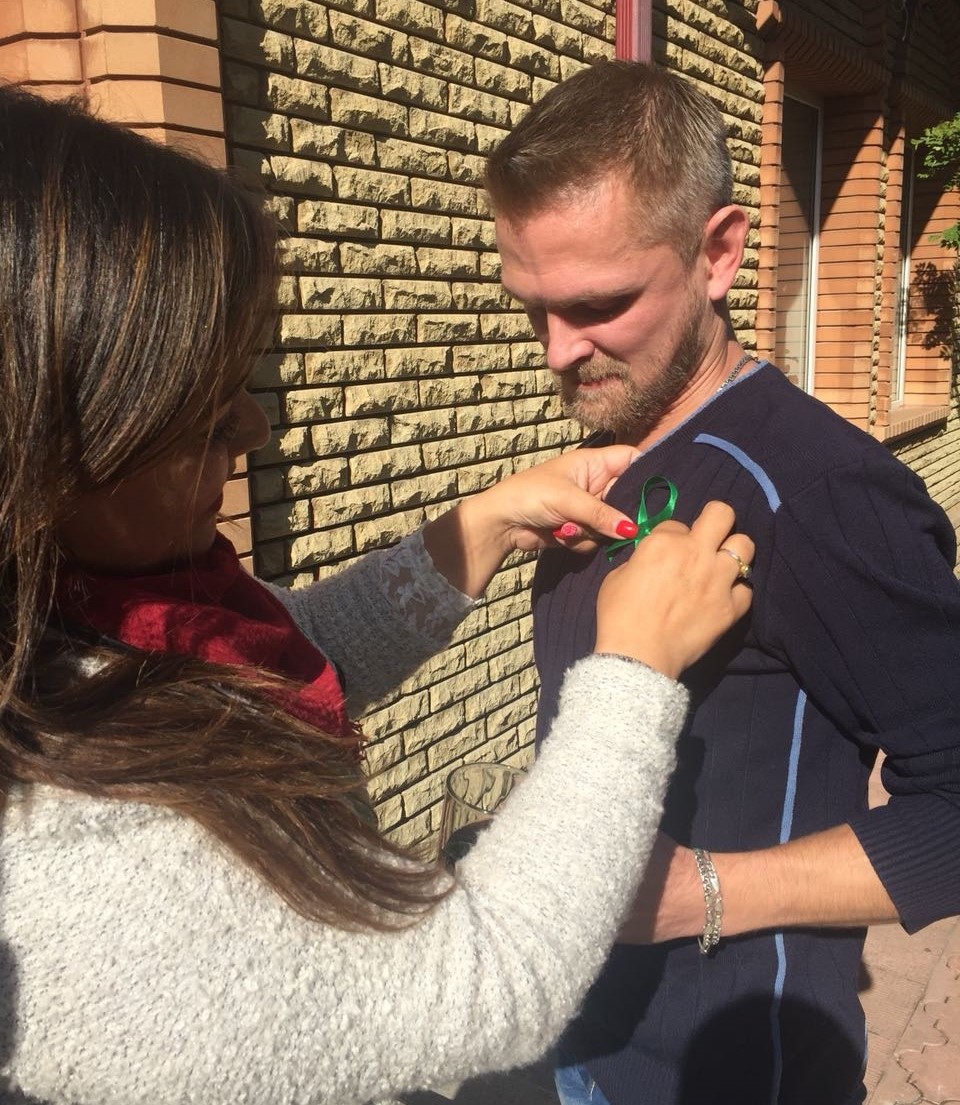Mental health in the workplace is a burning issue for many humanitarian workers as they are close to those who suffer the most and tend to bear the pain of the most vulnerable. Today, on the World Mental Health Day, we have asked several colleagues from the ICRC Subdelegation in Sloviansk how they cope with stress and emotional burnout at work.
Jorge Juan Solorzano Fernandez, Water and Habitat Engineer
“Every weekend I think about Avdiivka. It became automatic, a reflex, even during that short free time that my life in the field allows. This happened after the crisis with water supply, gas, and electricity that hit the city in early 2017. The scale and complexity of the problems overwhelmed our small team of engineers who were trying to provide at least temporary solutions and backup plans at temperatures below -20 degrees Celsius, while the fighting was ongoing. I felt like a surgeon watching my patient die. The necessity to stay alert without proper rest for many weeks in a row affected the whole team. Not to mention the lack of time for family and friends. It took a while to recover. Personally, I managed to regain quiet weekends with good sleep, good food and long conversations with my girlfriend. This is how I disconnect from the ICRC and the problems at work… I still think of Avdiivka and check media for the situation in the city wondering if we’ll have to run there again and cover a new emergency.”
Kateryna Vozniak, Economic Security Field Officer
“I enjoy direct, face-to-face communication with our beneficiaries even though distributions or registrations sometimes become quite stressful, for example, when there are too many people and you have to manage the crowd. However, I don’t go on field trips very often; instead, I answer to hotline calls. Some people just call to check information and it is easy to deal with such requests. However, many people call to complain about a certain program or the assistance eligibility criteria. Here it becomes stressful because often people do not want to hear any explanations; they want the solutions we can’t provide. This is when I get irritated and I know this is the time to take a break and go for a short walk“.
Maksim Bogachev, Weapon and Contamination Field Officer
“I enjoy talking to our beneficiaries, even though the stories they share are not easy. It’s always an interesting experience for me. I feel more stressed because of an occasional lack of coordination in the office and loads of correspondence. In such cases, I talk to my colleagues, as I believe I can overcome problems if I share them with others. Besides, I drink mint tea.”
Pavel Pershin, Economic Security Field Officer
“The most stressful time for me was when I started to work for the ICRC. It was a new type of job and there was too much information to consume, in addition to getting used to speaking English all the time. Another stressful thing is having too much work and struggling to finish all of my tasks in time. Then I try to reconsider and reschedule them. The biggest stress I face at work now is dealing with unhappy beneficiaries. I try to provide them with more information and show that we should stay calm and talk to each other with respect even in hard situations. To stay mentally fit, after coming home I try to take my mind off the work issues. In addition, I try to get more sleep and this helps me recover.”
Volodymyr Navrotskyi, Protection Field Officer
“Every day we deal with sensitive cases. For example, we document tracing cases of the people who went missing because of the conflict in Donbas, and we support their families. We meet people in frontline villages who suffer from shelling, injuries, and destructions. Emotionally it’s often not easy. To avoid burnout, I don’t try to live the problems and pain of our beneficiaries; instead, I remain positive and think of the ways how the ICRC can improve their situation.”
Simple Steps to Make Our Workplace Mentally Healthier
Humanitarian workers, like all other people at their workplace, face stress and need support. People might not be talking about it because mental health is still often a taboo subject. Many feel scared and confused about confronting the issue at work. But there are small, simple steps we can take to look after ourselves and make our workplace mentally healthier. Farhana Javid, the ICRC Mental Health and Psychosocial Support Delegate in Sloviansk, shares her thoughts: “On a personal front, I try my best to create a very positive and conducive environment within the staff, taking time to go and say hello to people, giving my colleagues hugs and spreading smiles. For me, sharing is caring and I make sure to go with some cookies and chocolates to share with my colleagues, charging them with some positive energy, and having a coffee or a drink after work, going for a long walk and just being there as a peer, and not as a psychologist.”
So, if you look around you, remember that your office mate or a colleague just next door is there to listen to you and can be of great help. It is important to talk.
To learn more about mental health in the workplace, click here.

